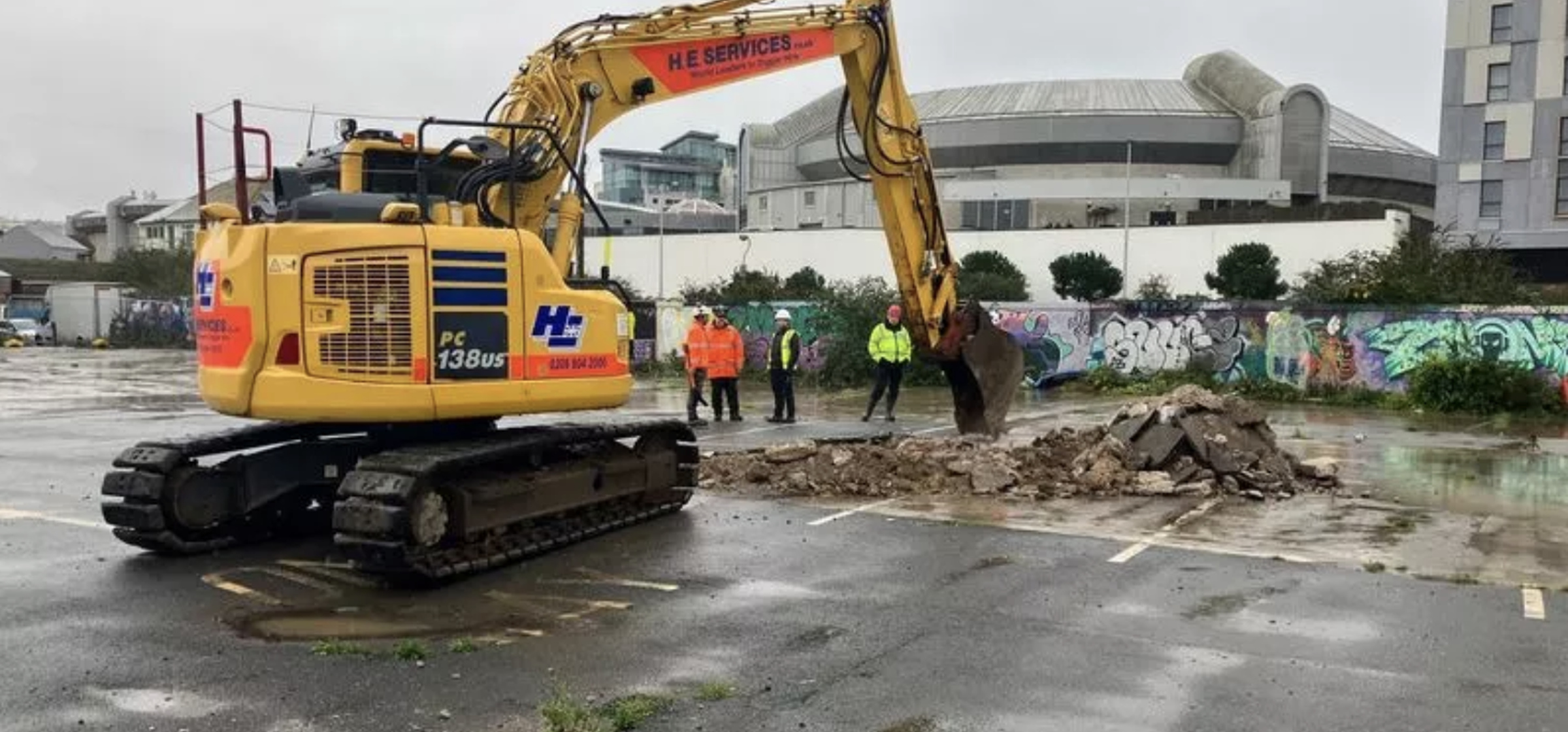Potential Threat in Plymouth Provides Learning Opportunities for REACT

Posted by Laura Butlin 18th November 2024 News
Estimated Reading Time: 2 mins
Image: Work begins to uncover the potential UXO in Plymouth. Credit William Telford
Construction crews in Plymouth made an unexpected discovery while preparing the disused Millbay site for redevelopment. Two suspicious metal objects were detected underground via ground-penetrating radar, prompting Plymouth City Council (PCC) to halt progress and schedule an excavation with the Explosive Ordnance Disposal (EOD) team. With the risk of unexploded ordnance (UXO) in mind, the City Council contacted REACT to assist with contingency measures, including evacuation efforts and organising an Emergency Rest Centre. Despite the unknown nature of the objects, REACT activated its network of Responders in the South, securing a committed team who stood ready to help.
If the objects turned out to be live ordnance, the plan required swift action to evacuate nearby residents and ensure safety protocols were followed. REACT provided similar support to PCC earlier this year when a UXO was discovered in the garden of a Plymouth resident. On this occasion, if the objects were found to pose no risk, REACT Responders would not be required to deploy.
Relief and Readiness
On October 18, the EOD team uncovered the truth: the suspected UXO was in fact a steel plate that had been reinforced with concrete. This was welcome news for residents, who had been advised to prepare for temporary displacement. When the news came, some Responders were already en route to Plymouth and were stood down.
Response Team Leader Alan Crocker said: “This operation once again highlighted the selfless commitment and readiness of our volunteer Responders. Despite not needing to deploy anyone on the ground, the operation offered valuable insights into our readiness, deployment capacity and capabilities.”
Testing the Operations Coordination Group (OCG)
Leveraging the relatively low-risk nature of the operation, REACT used the opportunity to refine the concept of an Operations Coordination Group (OCG), previously trialled during a response to support of Lebanon evacuees in Birmingham. This OCG model involves a tactical-level coordination team providing direct support to deployed teams under the strategic guidance of REACT HQ.
In preparation for this deployment, the OCG initiated several proactive measures including creating a structured, standardised Common Operational Picture (COP) in line with Joint Emergency Services Interoperability Programme (JESIP) standards.
Although the operation stood down, the preparatory work by the OCG offered insights into how REACT can scale its support for more complex and high-risk operations. These findings will inform future responses, both in the UK and internationally.
